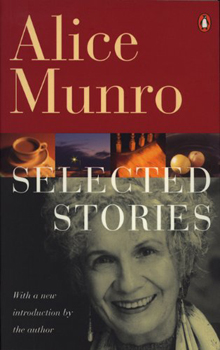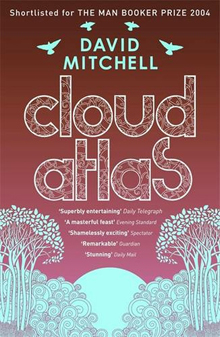This blog was never meant to be a fortnightly obituary, but important writers keep shuffling off this mortal coil. This week it was the acclaimed short story writer Alice Munro, sometimes dubbed the Canadian Chekhov because of her mastery of the form. Often slipping backwards and forwards in time, her narrative often hinge on a moment of epiphany in order to explore the complex emotional lives of ordinary people.
 Housewife Author
Housewife Author
Munro was born Alice Laidlaw in 1931, when society had certain expectations of women’s role. She wrote stories from being a teenager and weathered year upon year of rejection by publishers while also coping with the demands of being a wife and mother. In 1961 a Vancouver newspaper even published a patronising article about a ‘housewife’ who managed to find ‘time to write stories’.
Recognition and Awards
Her first collection of stories in book form, Dance of the Happy Shades, was published in 1968 and she began to make her mark. Her 1986 collection The Progress of Love was awarded the Governor General’s Literary Award, a prize she went on to win two more times. In 1998 she won Canada’s esteemed Giller Prize and the United States’ National Book Critics Circle Award. In 2009 she was awarded the big one for her body of work: the Man Booker International Prize.
Very sadly, Munro lived her last years with dementia, and one of her great later stories, The Bear Came over the Mountain, is about the ways in which Alzheimer’s disease whittles away at personality and identity.
Read an obituary of Alice Munro here.
And here is a recommendation of five great stories.
 Cloud Atlas
Cloud Atlas
Have you read David Mitchell’s Cloud Atlas? If not, you should. Playful and experimental with narrative to explore time, it is a fascinating roller-coaster of styles and less wilfully tricksy than some of his subsequent work. It is, says writer Gabrielle Zevin, the book all writers wish they had written. Read here why she thinks it a novel worthy of a tattoo.
Shakespeare the Actor
We know Shakespeare was a key member of the King’s Men theatre company and was a performer in plays before he was a writer. His awareness of performance inhabits his plays and of course there is key advice in how not to act in Hamlet. What parts he played has always interested scholars, and now one of them thinks he has found out. Do you think his evidence is convincing?